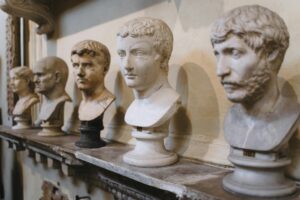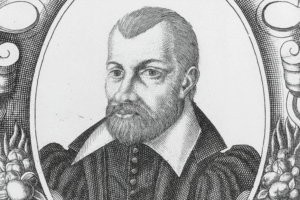Napoleon Bonaparte rose to power during the French Revolution and became Emperor of France, replacing King Louis XVI.
He was admired by soldiers, feared by kings, and studied by historians and generals for centuries because of his brilliant military strategies, sweeping legal reforms, and lasting impact on European history.
Napoleon Bonaparte was a practical yet ambitious leader who combined progressive reforms with authoritarian control to strengthen and expand his authority.
Even though his ambition eventually led to his downfall, his legacy continues to shape how we understand power and leadership today.
Learn more about Napoleon Bonaparte below.
The French Revolution Ended When Napoleon Bonaparte Ascended
The French Revolution, which began in 1789, made France unstable. When it had lost much of its original spirit by the 1790s, many people wanted stability.
Napoleon Bonaparte became prominent during this time and, in 1799, seized power by establishing the Consulate, naming himself First Consul.
This effectively ended the revolution.
The French accepted his rule because he promised peace and order. In 1804, he solidified his authority by crowning himself Emperor of the French.
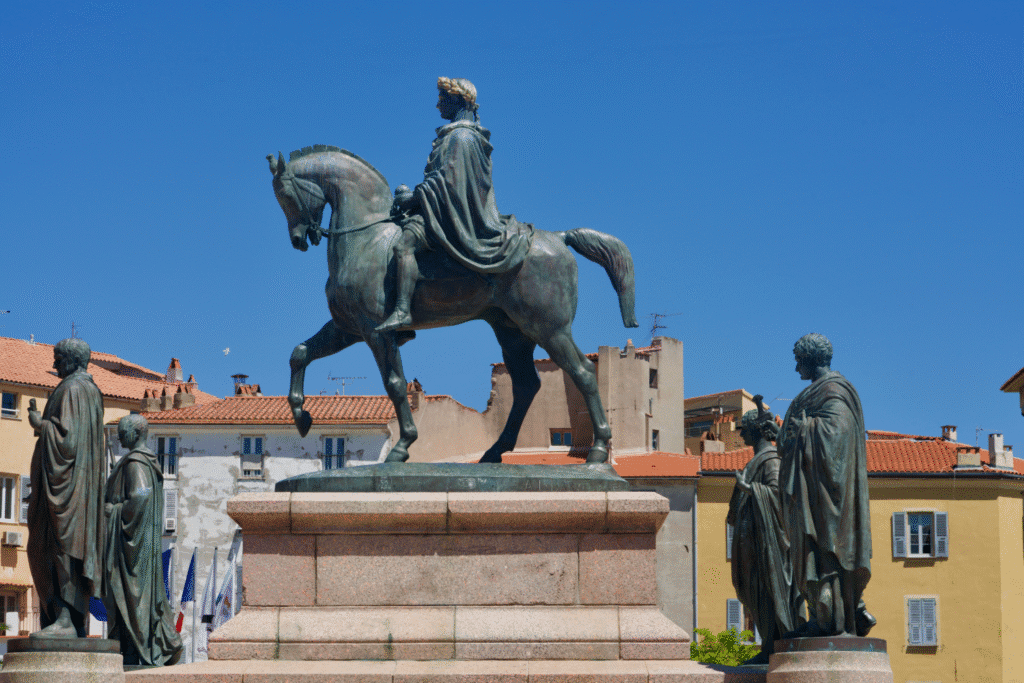
Napoleon Bonaparte Before the French Revolution
Napoleon was born on August 15, 1769, in Ajaccio, Corsica, just after France took control of the island from Genoa.
His family was part of the minor nobility but not very wealthy. This gave him ambition to rise higher in life.
Born as “Napoleone di Buonaparte”
Napoleon Bonaparte was born “Napoleone di Buonaparte,” which was Italian.
He changed his name to the more French-sounding “Napoleon Bonaparte” to fit in better as he pursued his career in France.
Attended a Military School
At the age of nine, Napoleon Bonaparte entered a military school, where he studied mathematics, history, and military science.
He later went to the École Militaire in Paris, a top military academy.
There, he trained as an artillery officer, which was important because artillery became one of his strongest tools in battle.
Napoleon Bonaparte Tried to Dominate Europe
After becoming emperor, Napoleon Bonaparte aimed to make France the dominant power in Europe.
He led a series of wars, known as the Napoleonic Wars, against coalitions of European monarchies who feared his power.
Below are some of his most famous battles.
Battle of Austerlitz
Also called the Battle of the Three Emperors, the Battle of Austerlitz is considered Napoleon Bonaparte’s greatest victory.
The Battle of Austerlitz was not Napoleon Bonaparte’s first battle, but it was a turning point in his military career.
He tricked Austria and Russia into attacking his seemingly weak position, only to crush them with a brilliant counterattack.
The result was a decisive French victory that forced Austria to sign peace.
Battle of Trafalgar
The Battle of Trafalgar, fought off the coast of Spain, saw the British navy under Admiral Horatio Nelson defeat the French and Spanish fleets.
This secured Britain’s control of the seas and ended Napoleon Bonaparte’s hopes of invading England. He was unsuccessful.
Peninsular War
In Spain, Napoleon Bonaparte faced fierce resistance from Spanish guerrilla fighters and the British army, led by the Duke of Wellington.
This dragged on for years and became a major drain on French resources.
The Spanish used hit-and-run tactics, and the local population resisted French occupation fiercely. It weakened him because it tied down hundreds of thousands of his soldiers who could have been used elsewhere.
It was his “Spanish ulcer” because it constantly hurt his empire.
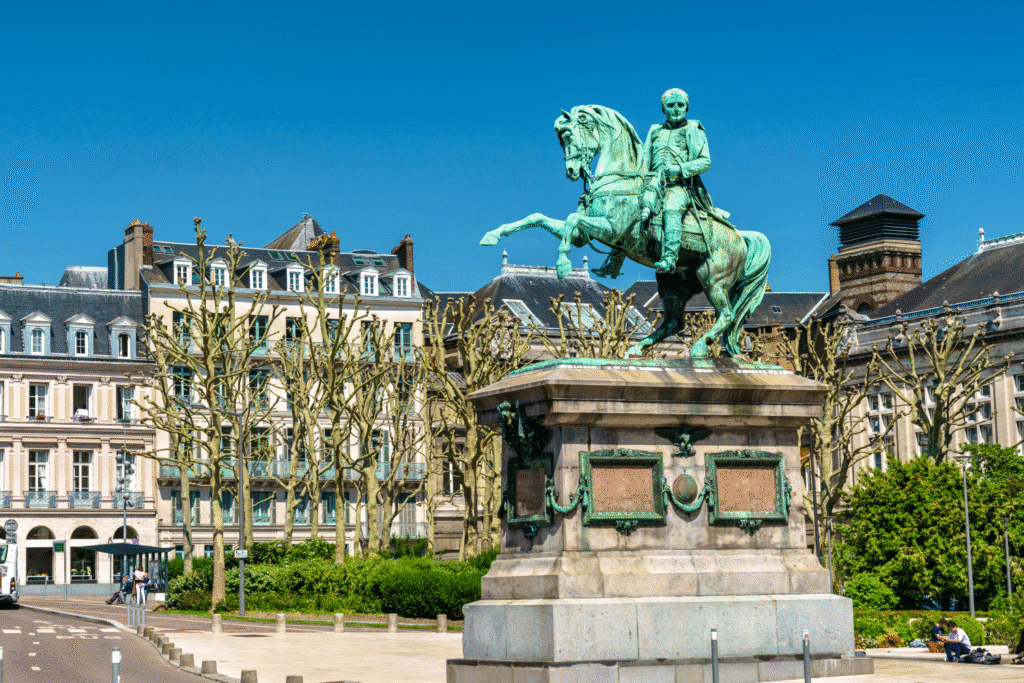
Russian Campaign
One of Napoleon Bonaparte’s biggest mistakes was invading Russia in 1812.
He gathered an enormous army, around 600,000 men, and marched into Russian territory. The Russians retreated deeper into their land, burning villages and crops so the French could not survive off them.
When winter came, the French army was unprepared for the cold, hunger, and disease. Only a fraction of the army returned.
Battle of Leipzig
During the Battle of the Leipzig, Napoleon Bonaparte fought against the combined armies of Russia, Prussia, Austria, and Sweden.
Russia, Prussia, Austria, and Sweden were major European powers that formed shifting alliances against Napoleon Bonaparte through various coalitions.
He suffered a crushing defeat, and his forces were forced to retreat. After that, he could no longer control most of Europe, and he started losing confidence.
Battle of Waterloo
The Battle of the Waterloo was Napoleon Bonaparte’s final battle.
After being exiled to the island of Elba, he escaped and returned to power in what is called the Hundred Days. His enemies quickly united against him.
At Waterloo, which is now Belgium, he faced the Duke of Wellington’s British army and the Prussian army under Blücher.
He was defeated. This ended his rule for good.
Napoleon Bonaparte Weakened After the Battle of Waterloo
After the Battle of Waterloo, Napoleon Bonaparte was no longer seen as an unstoppable leader but as a man who had reached too far.
Britain, Austria, Prussia, and Russia wanted to make sure he would never return, so they exiled him to a remote island in the South Atlantic Ocean.
There, he spent his time writing memoirs, reflecting on his life. Eventually, his health declined due to loneliness and the harsh conditions.
Napoleon Bonaparte Died of Stomach Cancer
Napoleon Bonaparte died on May 5, 1821, at the age of 51. The official cause was stomach cancer, but some have suspected poisoning.
Traces of arsenic were found in Napoleon Bonaparte’s hair, raising suspicions about his death in exile on Saint Helena.
His remains were later moved to Paris in 1840, where they rest in Les Invalides, a grand monument built during the time of King Louis XIV.
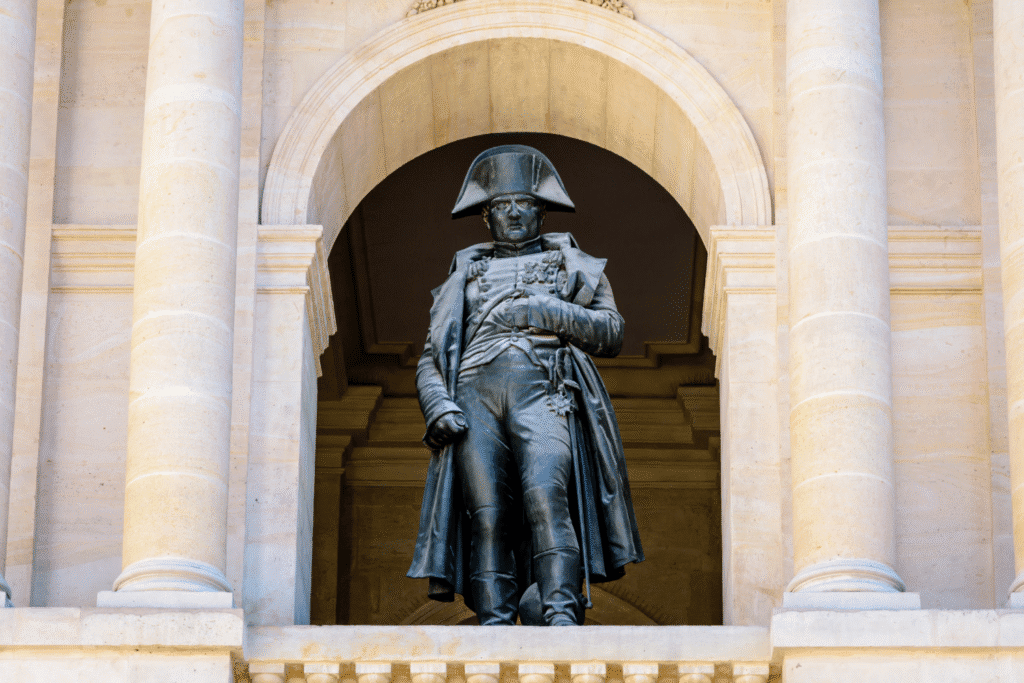
The Napoleonic Code Influenced Civil Law
In 1804, Napoleon Bonaparte introduced the Napoleonic Code, a set of civil laws that emphasized the following:
- All citizens were declared equal before the law, with no privileges based on birth or class.
- Civil law was made secular, separating it from church authority.
- A single, uniform legal system replaced diverse local customs in France.
- Property rights were considered sacred and strongly protected.
- Contracts were recognized as legally binding.
- Inheritance laws required children to inherit equally, limiting freedom to distribute property by will.
- Family law gave the husband and father authority over the household, limiting the legal rights of women.
- Marriage became a civil institution. Divorce was allowed, although it was easier for men than women.
- Citizens were guaranteed freedom of religion, but Catholicism was still favored by the state.
- Civil procedures were simplified and standardized across the state.
It remains the basis of law in France and influenced legal systems in Europe, Latin America, parts of Africa, and Asia.





